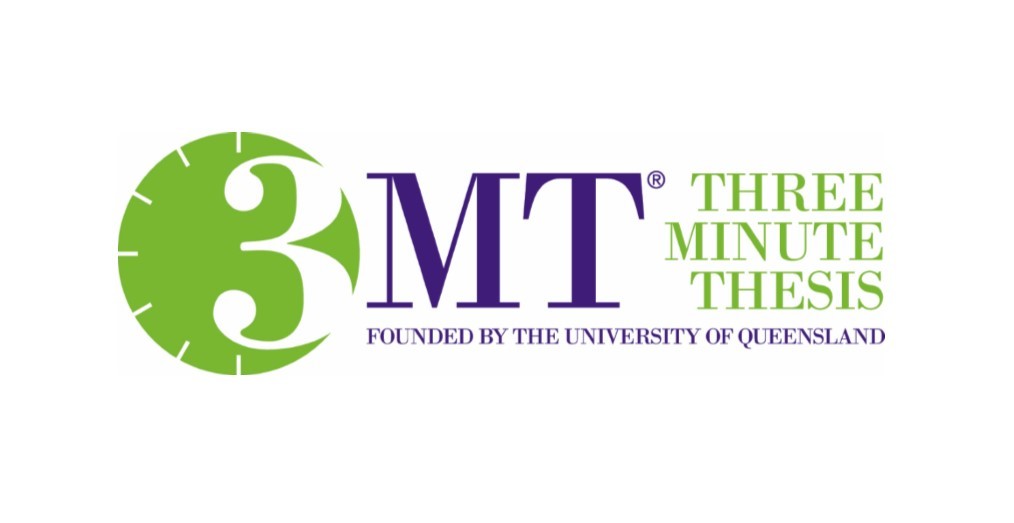Explaining your PhD – to a non-specialist audience and in 3 minutes!

Being able to explain your research in an engaging way to non-specialists is an important skill for formal public outreach – as well as helping with those everyday conversations outside of the lab. One initiative providing a competition to encourage such skills from PhD students, while providing a fun and interesting event in the process, is ‘3MT®’ developed by the University of Queensland (UQ), Australia and now held in 100s of institutions worldwide. Here, Nilla Wen, UQ Graduate School Engagement and Development Officer, tells us more.
How did 3MT start and how has it developed?
The idea for the 3MT competition came about at a time when the state of Queensland was suffering severe drought. To conserve water, residents were encouraged to time their showers, and many people had a three minute egg timer fixed to the wall in their bathroom. The then Dean of the UQ Graduate School, Emeritus Professor Alan Lawson, put two and two together and the idea for the 3MT competition was born.
The first 3MT competition was held at UQ in 2008 with 160 Higher Degree by Research students competing. In 2009 and 2010 the 3MT competition was promoted to other Australian and New Zealand universities and enthusiasm for the concept grew. Due to its adoption in numerous universities, a multi-national event was developed, and the Inaugural Trans-Tasman 3MT competition was held at UQ in 2010. Since 2011, the popularity of the competition has increased and 3MT competitions are now held in over 600 universities and institutions across 65 countries worldwide.
In November 2013, the first Universitas 21 (U21) 3MT competition was held with several universities from around the world competing in a virtual competition. 2016 brought an expansion of the Trans-Tasman 3MT competition to include a select number of Asian universities. The competition is now called the Asia-Pacific 3MT competition.
The competition has been appreciated by institutes and PhD students alike. Here’s 2014 UQ 3MT winner Dr Megan Rossi talking about how the 3MT competition helped her career: https://vimeo.com/138709200
What are the 3MT Competition rules?
- A single static PowerPoint slide is permitted. No slide transitions, animations or 'movement' of any description are allowed. The slide is to be presented from the beginning of the oration.
- No additional electronic media (e.g. sound and video files) are permitted.
- No additional props (e.g. costumes, musical instruments, laboratory equipment) are permitted.
- Presentations are limited to 3 minutes maximum and competitors exceeding 3 minutes are disqualified.
- Presentations are to be spoken word (e.g. no poems, raps or songs).
- Presentations are to commence from the stage.
- Presentations are considered to have commenced when a presenter starts their presentation through either movement or speech.
- The decision of the adjudicating panel is final.
Why the emphasis on just speaking (no props, one slide)?
The 3MT Competition focuses on cultivating students’ academic, presentation, and research communication skills. We believe ‘less is more’: additional props, text and complicated graphics can distract your audience – you want them to concentrate on listening to your 3MT.
What are the judging criteria?
Comprehension and content
- Did the presentation provide an understanding of the background and significance to the research question being addressed, while explaining terminology and avoiding jargon?
- Did the presentation clearly describe the impact and/or results of the research, including conclusions and outcomes?
- Did the presentation follow a clear and logical sequence?
- Was the thesis topic, research significance, results/impact and outcomes communicated in language appropriate to a non-specialist audience?
- Did the presenter spend adequate time on each element of their presentation - or did they elaborate for too long on one aspect or was the presentation rushed?
Engagement and communication
- Did the oration make the audience want to know more?
- Was the presenter careful not to trivialise or generalise their research?
- Did the presenter convey enthusiasm for their research?
- Did the presenter capture and maintain their audience's attention?
- Did the speaker have sufficient stage presence, eye contact and vocal range; maintain a steady pace, and have a confident stance?
- Did the PowerPoint slide enhance the presentation - was it clear, legible, and concise?
What are your own top public speaking tips for PhD students?
Vocal range
- Speak clearly and use variety in your voice (fast/slow, loud/ soft).
- Do not rush – find your rhythm.
- Remember to pause at key points as it gives the audience time to think about what you are saying.
Body language
- Stand straight and confidently.
- Hold your head up and make eye contact.
- Never turn your back to the audience.
- Practise how you will use your hands and move around the stage. It is okay to move around energetically if that is your personality; however, it is also appropriate for a 3MT presentation to be delivered from a single spot on stage.
- Do not make the common mistakes of rolling back and forth on your heels, pacing for no reason or playing with your hair as these habits are distracting for the audience.
Record yourself
- Record and listen to your presentation to hear where you pause, speak too quickly or get it just right.
- Then work on your weaknesses and exploit your strengths.
May we see some speakers in action?
Videos from 2018 UQ 3MT Competition:
Winner: Micha Jackson School of Biological Sciences, Faculty of Science Maintaining the magic of migration
UQ 3MT Final 2018, Winner - Micha Jackson from Three Minute Thesis (3MT®) on Vimeo.
Runner Up: Samantha Nixon Institute for Molecular Bioscience Fight creepy with crawly
UQ 3MT Final 2018, Runner Up - Samantha Nixon from Three Minute Thesis (3MT®) on Vimeo.
People's Choice: Saurabh Bandhavkar Mater Research Institute, Faculty of Medicine Neural stem cells and the pursuit of happiness
UQ 3MT Final 2018, People's Choice - Saurabh Bandhavkar from Three Minute Thesis (3MT®) on Vimeo.
Thanks to Nilla Wen for answering our questions and sharing the video(s) on the FEBS Network. For more information on 3MT go to: https://threeminutethesis.uq.edu.au/home





Join the FEBS Network today
Joining the FEBS Network’s molecular life sciences community enables you to access special content on the site, present your profile, 'follow' contributors, 'comment' on and 'like' content, post your own content, and set up a tailored email digest for updates.